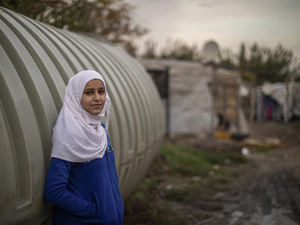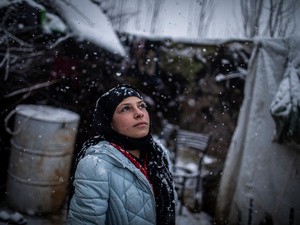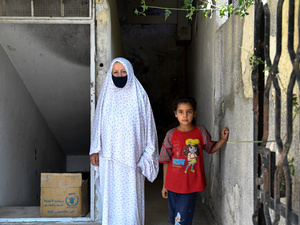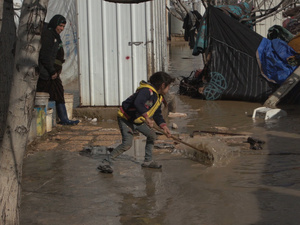Palestinian’s month-long airport limbo has happy ending
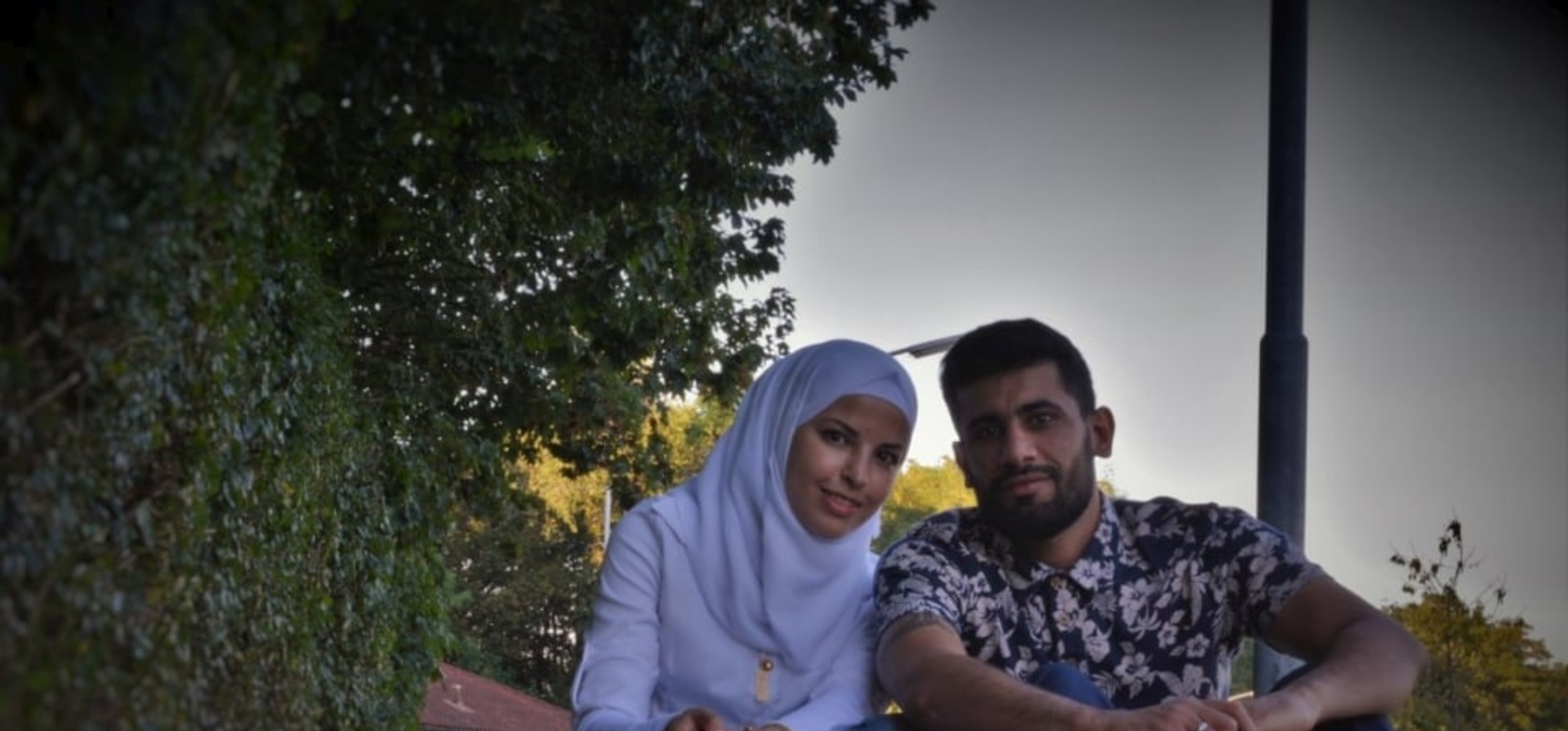
Palestinian’s month-long airport limbo has happy ending
UNHCR, the UN Refugee Agency, has helped reunite a Palestinian refugee with his wife in Austria after he spent more than a month shuttling between countries that all refused to admit him.
In a story reminiscent of the 2004 Tom Hanks film “The Terminal,” 27-year-old Wissam was forced to spend hours in limbo at airports as he tried unsuccessfully to gain admission to a series of countries.
“I didn’t believe I would see my parents again,” said a tearful Wissam. “I thought I would spend the rest of my life being deported from airport to airport, or end up forgotten in a detention center.”
“I thought I would spend the rest of my life being deported from airport to airport.”
Born in the Syrian city of Dara’a to a family of Palestinian refugees, he has no passport and holds only Syrian travel documents, which means no country will admit him without an entry visa issued in advance.
In 2008, he left Syria to study electrical engineering in Belarus. During a home visit in 2010 to see his family, Wissam met his future wife, Waed. But their love story would have to wait. He returned to Belarus to finish his studies, and a year later, war broke out in Syria.
As the fighting intensified, Waed and her family fled their home in Damascus, along with another 110,000 Palestinian refugees. After reaching Turkey, they crossed the Mediterranean to Greece and eventually arrived in Austria.
Wissam’s student visa expired and he was keen to be reunited with his wife. He crossed the border into Russia in 2015 in search of employment. However, he was detained by the police and accused of living in the country illegally.
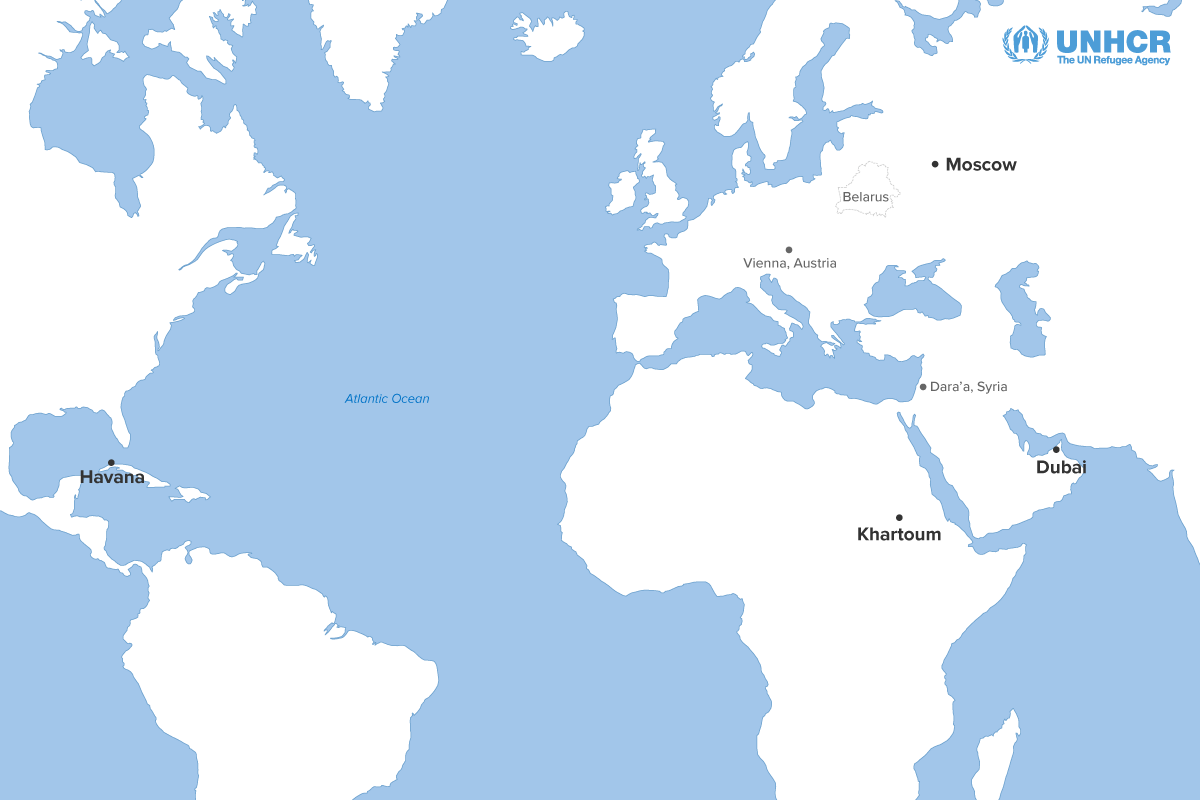
He was held for three months then deported to Sudan. However, on arrival in Khartoum, he was refused entry, and was flown back to Dubai on the same plane.
He was increasingly desperate for permission to enter a country, any country.
“I felt like the whole world is closed in front of me,” he said.
While he waited at Dubai airport, his father, who lives in the United Arab Emirates, obtained a visa for Wissam to go to Cuba. He immediately bought a ticket to Havana, but was again denied entry because of his status, and was deported back to Dubai via Moscow.
Once again sitting in Dubai airport, he seemed to have no hope of obtaining shelter in any country. It seemed his only option was to return to a war-ravaged Syria, where his life could be at risk.
In principle, Wissam falls under the mandate of the United Nations Relief and Works Agency, which serves more than five million Palestinian refugees in Syria, Jordan, Lebanon, West Bank and Gaza. However, since he was outside those countries and in need for international protection, he falls under the mandate of UNHCR as the “guardian” of the 1951 Refugee Convention.
“Finally we are together. I feel like I have been born again.”
When UNHCR officers learned of Wissam’s story, they asked the UAE authorities to allow him to stay under the care of his father, while a solution was sought. The agency requested the Austrian embassy in Abu Dhabi to grant him a visa to join his wife.
“The UAE played an important humanitarian role, and allowed Wissam and UNHCR breathing space to find a solution that brought an end to Wissam’s ordeal,” said Toby Harward, the head of the UNHCR office in Abu Dhabi,
Now safely in Austria, Wissam can begin his new life with his wife and after three years can become an Austrian citizen.
“Finally we are together. I feel like I have been born again,” he said. “I cannot wait to receive my new passport. My dream now is to travel without being stopped at any airport.”
Donate and help us reunite families



